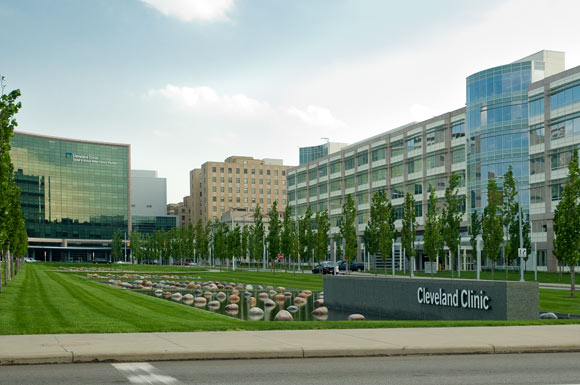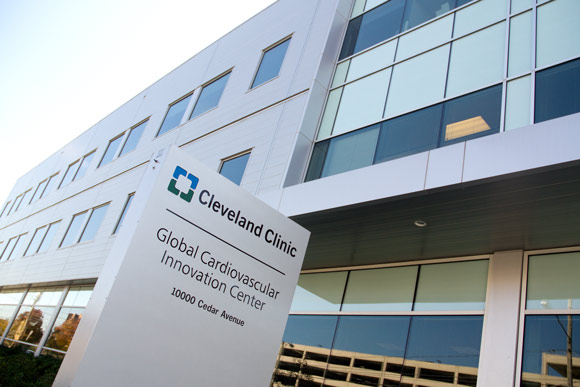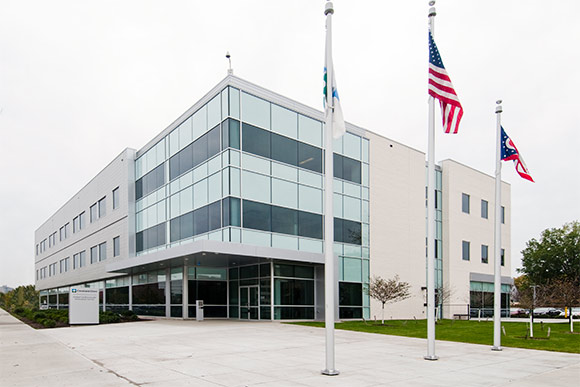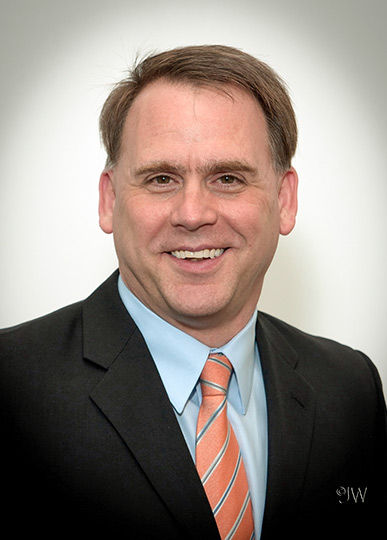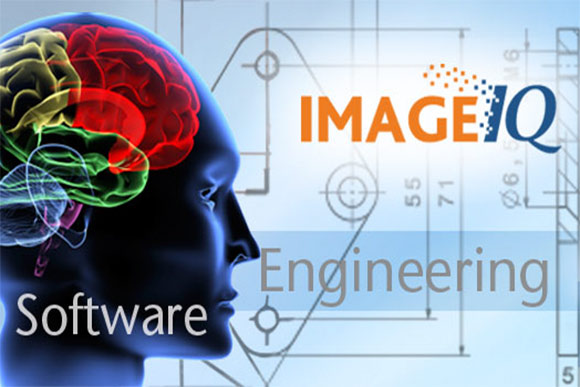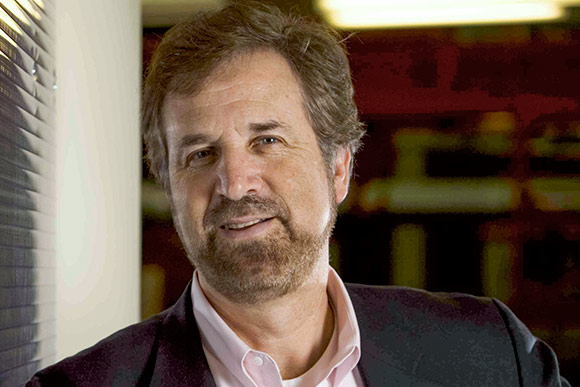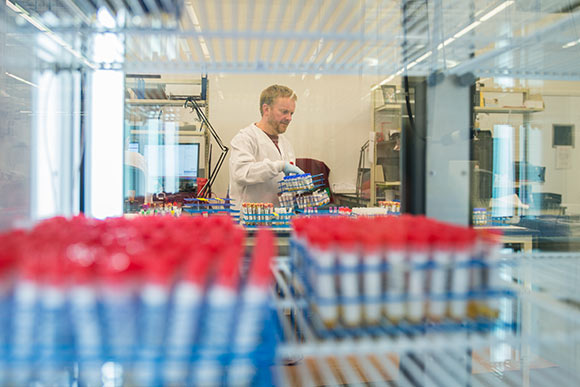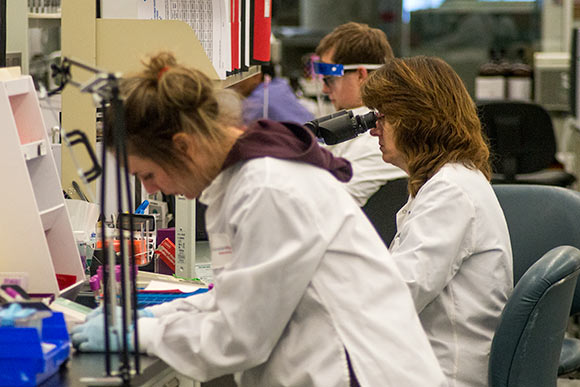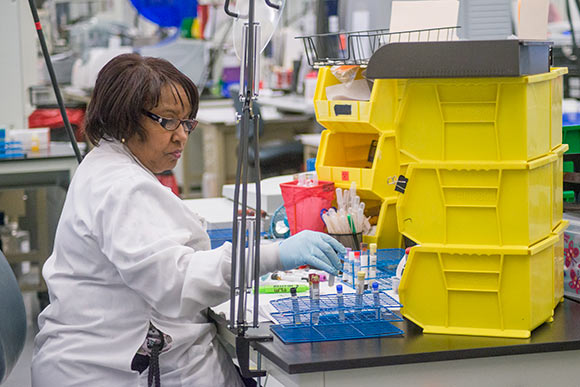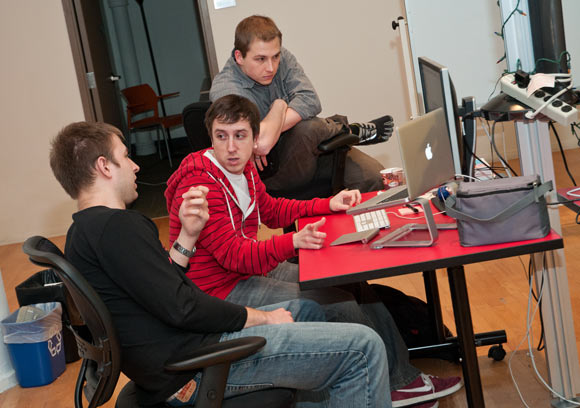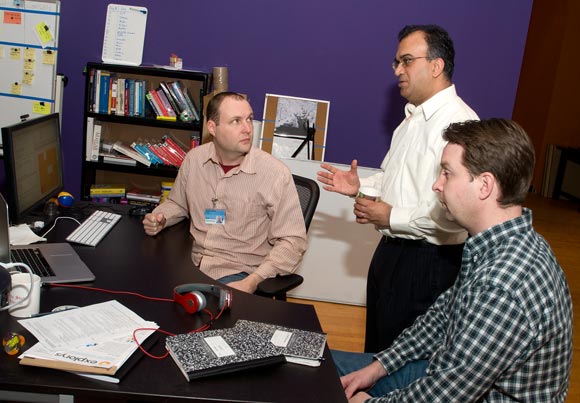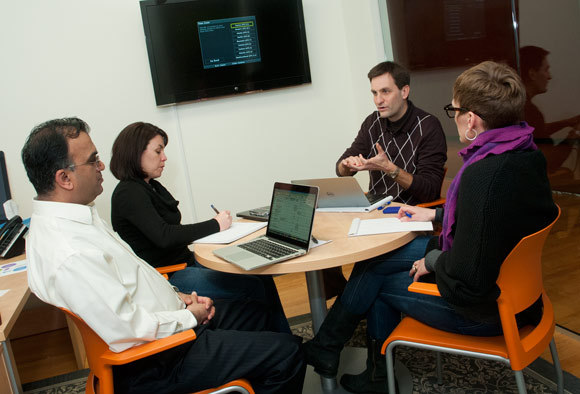Cleveland Clinic Innovations creates thriving companies out of research
For people in Cleveland and around the world, the Cleveland Clinic is a well-known name. Since 1921, the Clinic has carried the mission of “Better care of the sick, investigation into their problems and further education of those who serve.”
The Clinic’s founders, Frank E. Bunts, George W. Crile, William E. Lower and John Phillips, believed in diverse specialists working and thinking as a unit to foster excellence in patient care, research and education. Today, more than 3,200 physicians and scientists work toward maintaining that original vision and the six pillars of healthcare: Quality, Teamwork, Service, Integrity, Compassion, and Innovation.
In 2000, the Clinic expanded on the research aspect of its mission and the pillar of innovation with the creation of Cleveland Clinic Innovations (CCI) – the commercial component of the institution designed to promote innovations technologies in healthcare developed by Clinic employees and its Global Healthcare Innovation Alliance partners. CCI takes these inventors and their ideas and turns them into patient-benefiting medical products and services.
“The first reason we do this is to promote the innovations of our caregivers that affect people’s lives,” explains Gary Fingerhut, Cleveland Clinic Innovations executive director. “Second, it’s a superior service for our caregivers and we can use innovation as a way to retain and recruit the best and brightest. And, of course, we monetize these ideas to continue development.”
When an inventor makes an invention disclosure to CCI, the invention is evaluated and developed to commercialization. The best path for commercialization -- license or start-up company – is determined. “A start-up may be chosen as the commercialization vehicle when there is a broad intellectual property platform, significant change over current standards of care, a sizable market opportunity, ability to recruit investment and ability to exit,” explains Fingerhut. “Cleveland Clinic Innovations focuses on technology transfer and commercialization.”
In its 15 years, 73 companies have come out of CCI based on Cleveland Clinic technologies and inventions. The companies have ranged from biopharmaceutical to diagnostics to big data. Almost three-quarters of these companies have received more than $910 million in equity investments. CCI has executed more than 500 licenses and 2,700 patent applications, with 700 issued patents.
“It’s beyond just a tech transfer office,” says Fingerhut. “By creating an entrepreneurial environment, it’s an opportunity every caregiver can participate in through the invent process.”
Some of the 73 spinoff companies, such as Explorys, Talis Clinical and Cleveland HeartLab, have become recognizable entities in Cleveland and worldwide. Others are just getting started.
Here are three companies that came out of CCI to improve healthcare and make patients’ lives a little better.
A Vision of Technology
When Amit Vasanji was founder and executive director of Cleveland Clinic’s Biomedical Imaging and Analysis Center, he approached CCI with his software that provides better analysis of images from MRIs and CT scans. CCI took on what is today known as ImageIQ in 2011, when “Software as a Service” was a novel concept.
“We’re a little bit of an odd bird compared to other kinds of innovations that come out of the Cleveland Clinic,” says ImageIQ CEO Tim Kulbago. “A white coat, usually a doctor, comes up with an idea that is relatively clear with a focus and some intellectual property. Four-and-a-half years ago in healthcare IT, the vision of using software was relatively new.”
Kulbago says the idea for ImageIQ was at first difficult to define to CCI. “How do you license it, how do you create a business model, how is this going to work,” he recalls. “We don’t just have a thing? There were some challenging conversations, as it should be when you’re spinning out a company and starting it on your own. Since then, they’re much more comfortable.”
Today, ImageIQ is much more than a service provided in an imaging lab. The company has three areas of expertise: Pharmaceutical, medical devices and research. It is an Imaging Contract Research Organization (ICRO) and software developer for customized imaging, analysis and software. Clients come from medical device, pharmaceutical and research organizations. But the possibilities extend to a variety of fields.
ImageIQ has grown from four employees to 14 and last summer moved out of the incubator at CCI’s Global Cardiovascular Innovation Center (GCIC) to offices in Warrensville Heights. “The Clinic has been nothing but supportive,” Kulbago says of ImageIQ’s relationship with CCI. “We are an independent company, but Cleveland Clinic Innovations serves as a shareholder and a board member. That said, being an independent company, we have the ability to tap into their professional network, and that is super helpful.”
Fighting Cancer
With determination and focus, a team of researchers has been spending their time trying to find a way to detect some forms of cancer in its early stages through a blood test. When CCI heard about the research, Cleveland Diagnostics was formed.
When Arnon Chait and Boris Zaslavsky began searching for a way to detect prostate, ovarian and breast cancers at their company, Analiza in the late 90s the research led to grants from the National Institutes of Health. Then, when the entrepreneurs connected with Mark Stovsky at University Hospitals, little did they know at the time the relationship would lead to a brand new company out of CCI.
Stovsky was Analiza’s principal investigator in its original study at UH. He moved to the Cleveland Clinic around 2012 and he took over as associate professor of surgery in urology and staff urologist in the Glickman Urological and Kidney Institute. Soon after, he brought Chait’s and Zaslavsky’s research to the attention of CCI.
“The Clinic saw great potential to work with us,” says Chait. So in 2013, Cleveland Diagnostics was created. “We developed the technology to develop a blood test to detect cancer early and effectively. It’s about early detection and all the good things that go along with it.” Cleveland Diagnostics is currently working on test validations of its technology with the Clinic and is collaborating on two clinical studies in Nigeria.
Chait serves as Cleveland Diagnostics’ CEO, while Zaslavsky is the chief scientific officer and Stovsky is chief medical officer. Stovsky is also the science and technology innovation officer at CCI. The company has eight employees and several part-time consultants.
CCI fostered Cleveland Diagnostics through investments, contacts and other resources. Chait calls the relationship “kind of amazing. You need a partnership with an institution like that. It’s an extremely productive relationship.”
Cleveland Diagnostics has offices in Tyler Village at East 36th Street and Superior Avenue.
Breaking into E-Commerce
Last October CCI launched its first e-commerce company, ADEO, with its partners in the Global Healthcare Innovation Alliance. The website offers products and services developed by Clinic employees and Alliance members -- a network of hospital systems, academic institutions and industry partners.
“ADEO became a way to work with the alliance partners to bring health IT to market,” explains Sonja O’Malley, senior director of health IT communications for CCI. “If you take a look at our portfolio, 300 to 600 projects are done annually across the Alliance. We really had to get creative and work together with caregivers and entrepreneurs.”
The usual path to commercialization involves licensing products to third party sellers. CCI developed its own set of standards and created ADEO as a way to get the products developed within the Clinic and the Alliance to market quickly.
ADEO, which means “to go forward” in Latin, recently started accepting orders, allowing anyone to buy a product from one of the nation’s first online marketplaces for medical innovations. It currently features 13 products, ranging from educational toolkits to apps and hosted software.
Some of the products on the ADEO site that have already been popular are TrACWork, a continuous improvement app for caregivers, and MyFamily, a web-based way for patients to create personalized healthcare plans based on their family histories.
Currently, ADEO only sells products and services created by Alliance members. But program manager Erin Stanek says outside companies have taken notice. “We’re starting to get a lot of interest from other healthcare organizations,” says Stanek. “Some of the organizations reaching out to us are broad-sweeping, so we’re excited about the impact.”
E-commerce is the perfect way to market and showcase some of the innovations that are created out of the Cleveland Clinic and the Alliance partners. With so much interest already coming from the site’s launch, O’Malley says she sees ADEO only getting larger.
“ADEO illustrates the need for collaboration,” O’Malley says. “Value-based modal collaboration is a measurement. ADEO is one of the way to align with what’s happening. It exudes the spirit of our mission – to move forward and advance healthcare. That’s what ADEO’s all about.”


